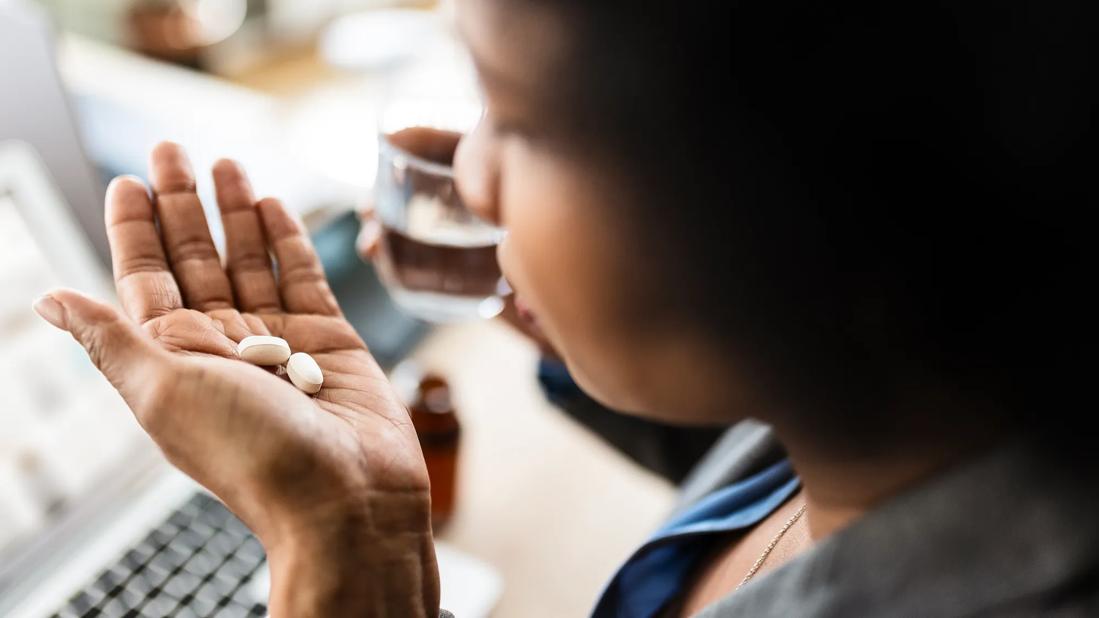‘Opioids’ is a catchall term for opiates and other drugs that cause similar opioid-like effects

Image content: This image is available to view online.
View image online (https://assets.clevelandclinic.org/transform/c71290f4-d9ce-446f-a72e-3b4a4123fbb4/personTakingPills-2025723774)
Person holding two pills in palm of hand and glass of water in other hand, keyboard in background
Opioids and opiates ease pain and have other medicinal purposes. The two classes of drugs aren’t exactly the same, but they share many similarities. Many experts use the terms interchangeably because the drugs’ uses and effects have a lot in common.
Advertisement
Cleveland Clinic is a non-profit academic medical center. Advertising on our site helps support our mission. We do not endorse non-Cleveland Clinic products or services. Policy
“It’s not a matter of opioids versus opiates,” says psychiatrist and substance use disorder specialist David Streem, MD. “From a patient perspective, opiates and opioids perform similar functions when used as prescribed. When misused, they can lead to a substance use disorder.”
In fact, opioids and opiates are more similar than different. Dr. Streem explains.
The key difference between the two groups of drugs is their chemical makeup:
For the most part, yes. Opioids and opiates are both narcotics. The word “narcotics” comes from the Greek word “narkoun,” which means to numb. Narcotics dull your senses, including your perception of pain.
Some drugs like hydrocodone and oxycodone are a mix of natural and lab-made chemical compounds. They fall into the opioid category. Even though opiates are made from natural compounds, healthcare experts and others now lump them in with opioids.
Advertisement
“We view any drug that causes opioid-like effects to be an opioid,” states Dr. Streem.
So, all opiates are opioids. Other drugs that fall into the opioid category include kratom (an herbal supplement) and tianeptine (more commonly called gas station heroin).
Now that we’ve (sort of) cleared up this confusion, Dr. Streem explains the many similarities that opioids and opiates share.
Opioids and opiates share four key similarities:
Chemicals in opioids and opiates bind to and activate opioid receptors in your brain, spinal cord and organs. This interaction slows or blocks signals that make you feel pain. It also causes your brain to release large amounts of dopamine.
“Dopamine carries nerve cell messages between your brain and body,” explains Dr. Streem.
You might know dopamine as the “feel-good hormone.” It plays a key part in your brain’s reward center, eliciting feelings of pleasure.
Opioid receptors in your body also help regulate:
Opioids and opiates ease pain from surgeries, traumatic accidents and cancer treatments. But the drugs are also effective for:
Common side effects of opioids and opiates include:
Because opioids and opiates can make you feel euphoric (high), there’s an increased risk for misuse and opioid use disorder (OUD).
An estimated 2.5 million Americans have OUD. Signs of this substance use disorder include:
OUD increases the risk of opioid overdose.
“Opioids can overly stimulate the part of the brain that controls breathing, causing you to stop breathing,” clarifies Dr. Streem.
A person who is overdosing requires immediate medical attention. After calling 911 or emergency services, you should administer Narcan®. This over-the-counter nasal spray reverses opioid effects, helping restore normal breathing.
Without question, the misuse of legal and illegal opioids continues to be a global crisis. But Dr. Streem stresses that it’s safe to take opioids — as prescribed by your healthcare provider — for acute or chronic conditions.
Advertisement
“Most people need prescription opioids for a short time and are unlikely to develop a substance use disorder,” he says. “But if you are concerned, there are other medications and treatments for easing pain.”
Advertisement

Sign up for our Health Essentials emails for expert guidance on nutrition, fitness, sleep, skin care and more.
Learn more about our editorial process.
Advertisement
The herbal supplement continues to be sold amidst warnings about health risks
The nasal spray has the power to reverse the effect of opioids
The result is a huge win for anyone at risk of an opioid overdose
An innovative treatment option may be possible
Popular among teens, these inhalants give you a quick high, with serious harmful effects
Sellers call it ‘light weed,’ but the health effects and safety are largely unknown
Sudden changes in mood, behavior, alertness and intoxication level are red flags
Neonatal opioid withdrawal syndrome, or NOWS, can develop when a fetus is exposed to opioids, nonmedical drugs or even some prescription drugs during pregnancy
Although it could be used as a moisturizer, this new trend is not recommended
Communicating clear limits helps protect your time, energy and emotional well-being
High cholesterol can be genetic, but testing and treatment can lower your heart disease risk